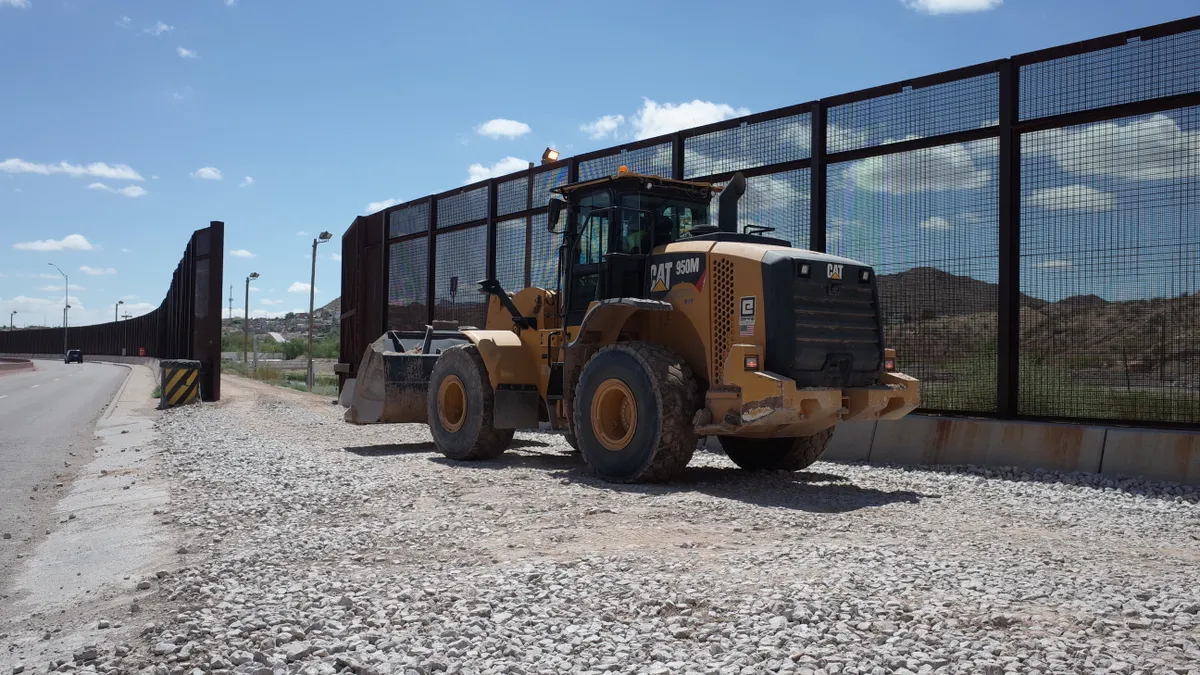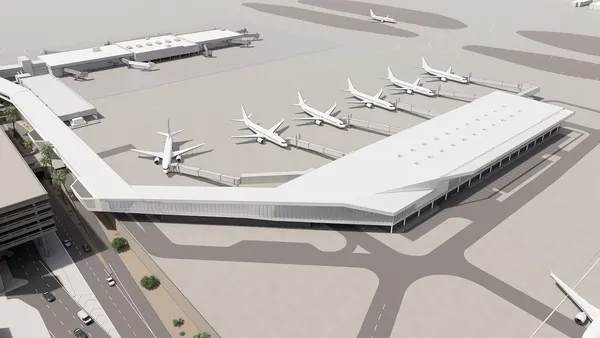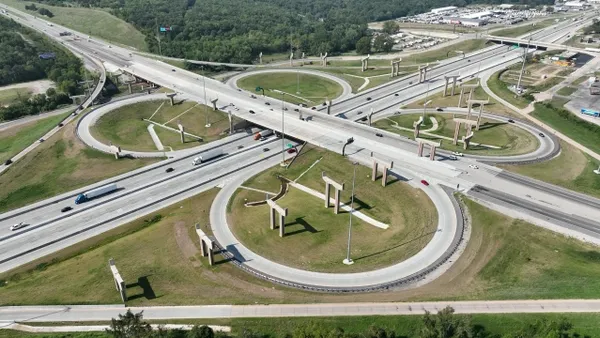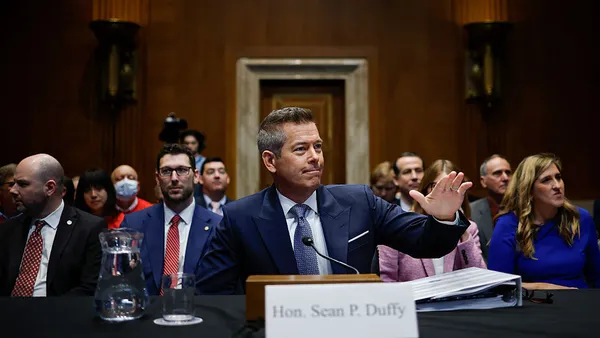Dive Brief:
- The Department of Homeland Security's Acting Director Chad Wolf has waived the procurement laws that typically govern publicly funded construction projects in order to expedite work on portions of the U.S.-Mexico border wall. The waiver is effective Feb. 20.
- In the DHS's Federal Register notice, Wolf said the waiver will apply to certain projects in select counties in California, Arizona, New Mexico and Texas. Construction work covered by the waiver includes access roads to and around the designated projects; earthwork, excavation; site preparation; installation and maintenance of barriers; drainage and erosion controls; and safety and security features. The work will span the U.S. Border Patrol's San Diego, El Centro, Yuma, Tucson, El Paso, and Del Rio sectors.
- The companies that will be able to work under the waiver, the Associated Press reported, are those that the U.S. Army Corps of Engineers shortlisted in May 2019 to compete for $5 billion worth of border wall contracts during the next five years. Those firm-fixed-price contracts will include both design-build and design-bid-build project delivery.
Dive Insight:
The contractors that the Army Corps chose are:
- BFBC (Bozeman, Montana)
- Texas Sterling Construction Co. (Houston)
- Bristol Construction Services LLC (Anchorage, Alaska)
- Burgos Group LLC (Albuquerque, New Mexico)
- Gibraltar-Caddell JV (Montgomery, Alabama)
- Fisher Sand & Gravel (Dickinson, North Dakota)
- Southwest Valley Constructors Co. (Albuquerque)
- Randy Kinder Excavating Inc. (Dexter, Missouri)
- Martin Brothers Construction (Sacramento, California)
- SLS Ltd. (Galveston, Texas)
- Posillico Civil Inc./Coastal Environmental Group Inc. JV (Farmingdale, New York)
- CJW JV (Santa Ana, California)
Local, state and federal agencies must abide by procurement laws for publicly funded work so that they can ensure the taxpayer is getting the best deal through either low-bid or best value selection processes; can make sure that the contractors who are bidding on a project have relevant experience and are financially capable of carrying out the work in a safe, secure and successful manner; can verify that the workers on the project are being paid a prevailing wage; and that small-, minority- and disadvantaged-owned companies are able to get a fair shot at participation.
Under the DHS waiver, the following rules are among those that will not apply to the designated projects:
- 10 U.S.C. 2304; competition requirements.
- 10 U.S.C. 2306a; the prohibition of using cost-plus-a-percentage-of-cost contracts and the requirement that the procurement agency attempt a sealed bid procedure before any other method.
- 10 U.S.C. 2305(a)-(c), (e)-(f); planning, soliciting, evaluating and awarding contracts in a way that promotes and supports full and open competition.
- Section 813 of Public Law 114-328, as amended by Section 822 of Public Law 115-91; use of the lowest-priced, technically-acceptable source.
- 48 CFR 17.205; Documentation of special contracting methods.
- 48 CFR 17.207; The exercising of the most advantageous contract options.
- 48 CFR 22.404-5; Wage determinations reflecting prevailing wages and fringe benefits.
- 48 CFR 28.102-1(c); Requirement that contractors post payment and performance bonds.
The President Donald Trump administration has drawn criticism from environmental advocates by also waiving clean air, water, cultural, endangered species and other environmental regulations for previous border wall projects. Thus far, legal challenges to those waivers have been unsuccessful.














